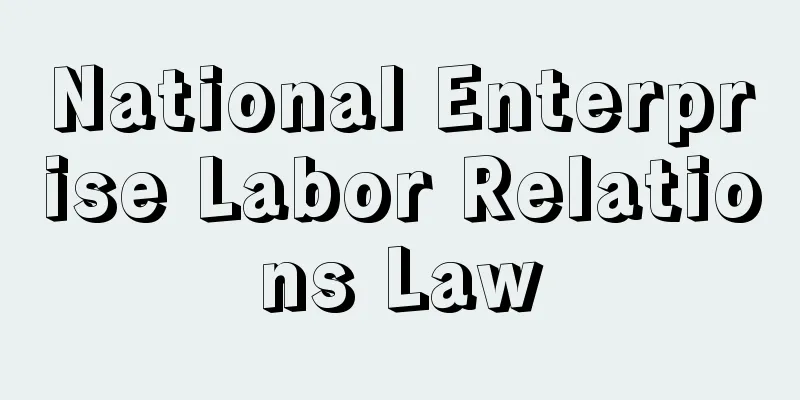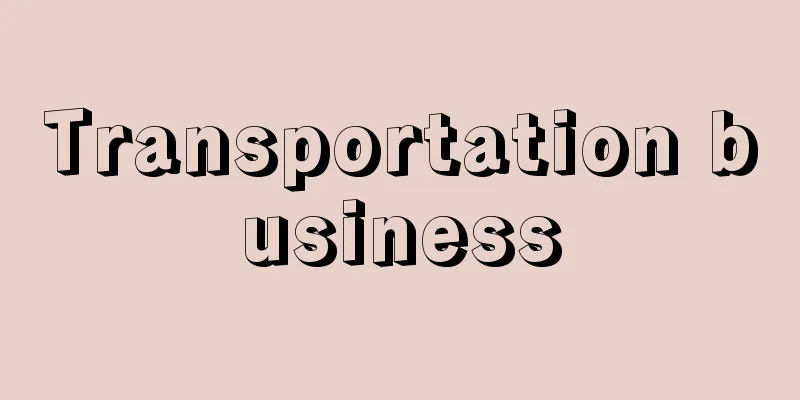National Enterprise Labor Relations Law

|
Law No. 257 of 1948. Formerly called the Public Corporations and Other Enterprises Labor Relations Law (Public Corporation Labor Law), it regulated the labor relations of the three public corporations (Japan National Railways, Japan Electric Power Corporation, and Japan Tobacco and Salt Public Corporation) and the four public enterprises (Japan Post, National Forests, Printing, and Minting). However, after the three public corporations were privatized and no longer covered by the law, the law was amended in 1986 to change its name to the current one. Although employees of the four public enterprises, which are government-run enterprises, are national civil servants in terms of status, the nature of their work is closer to that of private-sector workers. Therefore, this law provides more flexible labor-management regulations than the National Civil Service Law, such as approval of the formation of labor unions, protection through the unfair labor practice system, and the right to collective bargaining, including the conclusion of labor agreements. At the same time, it also provides restrictions not found in general private companies, such as the prohibition of industrial action, limitations on the scope of collective bargaining, limitations on the effectiveness of labor agreements that include expenditures that cannot be budgeted, and forced arbitration. During the era of the Public Enterprise Labor Relations Law, the Public Enterprise Labor Relations Commission (Public Enterprise Labor Relations Commission) was established as a separate dispute resolution body, but it has now been integrated into the Central Labor Relations Commission. Source: Encyclopaedia Britannica Concise Encyclopedia About Encyclopaedia Britannica Concise Encyclopedia Information |
|
昭和 23年法律 257号。かつては公共企業体等労働関係法 (公労法) と呼ばれ,三公社 (国鉄,電々公社,専売公社) および四現業 (郵便,国有林野,印刷,造幣) の労働関係を規律していたが,三公社が民営化され適用対象外となったのを受けて,1986年の改正で現在の名称に変更された。政府経営事業である四現業の職員は,身分上は国家公務員であるが,その職務の性質はより民間企業の労働者に近いため,この法律によって労働組合の結成承認と不当労働行為制度による保護,労働協約締結を含む団体交渉権など国家公務員法よりも柔軟な労使関係規制がなされている。同時に争議行為の禁止をはじめ,団体交渉の範囲の限定,予算上不可能な支出を内容とする労働協約の効力の制限・強制仲裁など,一般私企業にはみられない制約もある。公労法時代には独自の紛争処理機関として公共企業体等労働関係委員会 (公労委) が設けられていたが,現在では中央労働委員会に統合されている。
出典 ブリタニカ国際大百科事典 小項目事典ブリタニカ国際大百科事典 小項目事典について 情報 |
<<: National broadcasting - kokueihoso (English spelling)
Recommend
cephalic index of the living
…The anthropological value of head shape is very ...
Oxycarboxylic acid - Oxycarbosan
《 Oxycarboxylic acid 》 Hydroxycarboxylic acid. A c...
Obokko - Obokko
…It is one of the fish that grows in succession, ...
Chitarrone (English spelling)
A type of stringed instrument in the lute family. ...
Akanuma
...It belongs to Kitashiobara Village, Yama Distr...
"The Lustful Witwe" (English: The Lustful Witwe)
…The son of a German military bandmaster and a Hu...
North Pole - N pole
...The force (magnetic force) acting between magn...
Clivia nigra - Clivia nigra
...A perennial plant of the Amaryllidaceae family...
ME - ME
Medical electronics / medical engineering : The ap...
hijab (English spelling)
… [Ikeda Takae] [The Veil of Islamic Society] In ...
Vanillin
An aromatic aldehyde, another name for 4-hydroxy-...
Livestock Infectious Disease Prevention Law
Law No. 166 of 1951. This law was enacted to promo...
Saimiri
...A general term for New World monkeys belonging...
Agave - Agave
Also known as the "Fukurin agave." An ev...
Kaigata [Hot Spring] - Kaigata
Hot springs overlooking Kagoshima Bay in Tarumizu ...









